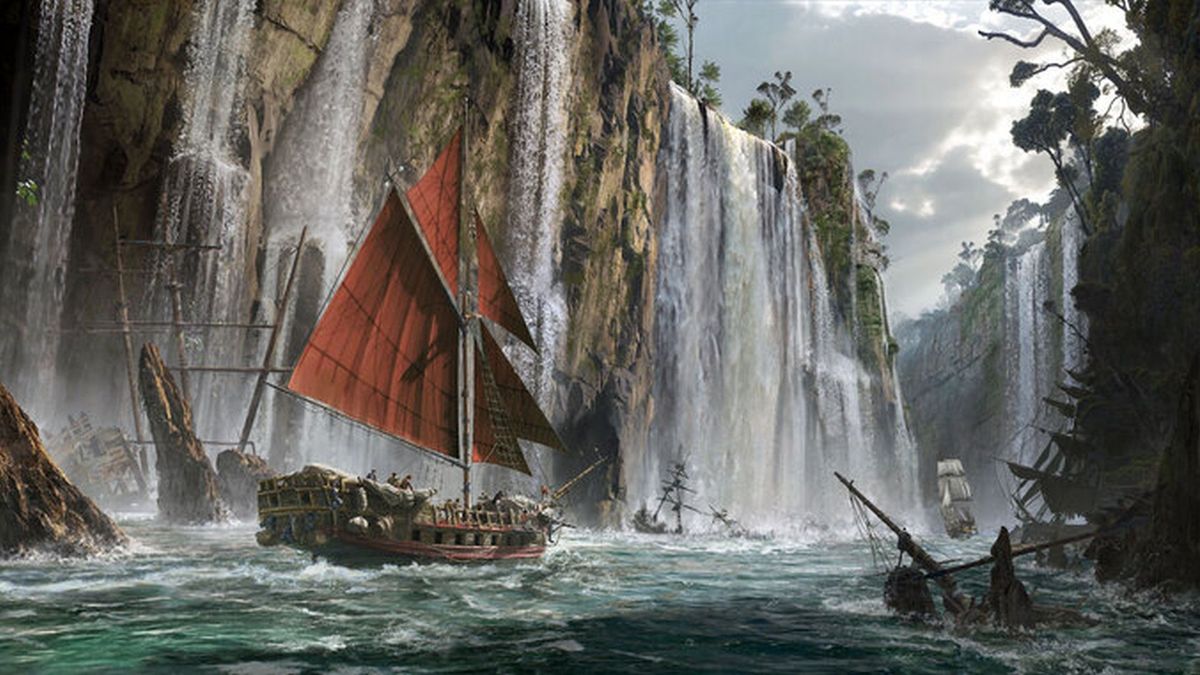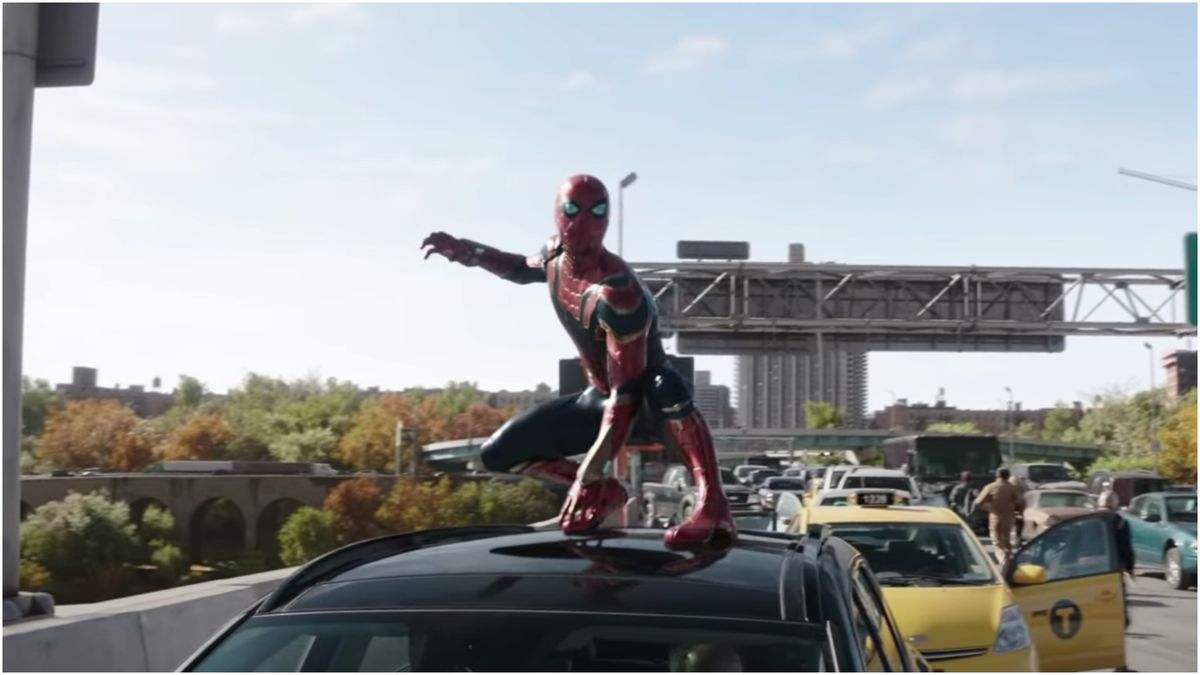Objection!

The misuse of the court system by countless sleazy lawyers may be the key to the the decline of western civilization, but sometimes its hard to forget all the ways theyve impacted our lives. Legal battles protect countless civil rights, lead to safer consumer products, and give us the spectacle of 50 Cent battling Taco Bell. As youd expect (based on the headline), numerous court cases have had similar impacts on the games industry as well.
Video games are a business, and that means armies of lawyers have altered the direction of gaming over and over again. Do you enjoy renting games, controllers that rumble, or the existence of gaming genres? At least some of the credit goes to the thousands of billable hours lawyers spent in court arguing those cases and others. If you think Im wrong and want to sue me for making false statements, Ive got the evidence to back it up. Consider this exhibit A
Universal v. Nintendo

What was at stake? Nintendo was a mid-sized Japanese toy company, new to video games and benefiting from its first real success in North America: the surprise hit Donkey Kong. But Universal, the media empire behind King Kong (among many other things), felt the games plot of an ape taking a woman to the top of a building was a little too similar to their iconic film. Universal threatened to sue the much smaller Nintendo for trademark infringement in the hopes of a quick settlement, but Nintendo took the case to court.
What did the lawsuit change? If Nintendo had lost the Donkey Kong series to Universal, its easy to imagine that the game publishers growth outside Japan would’ve been severely limited. Fortunately, its gutsy move paid off, as Nintendo won both the original case and the appeals. Not only that, but it had proven Universal didn’t even own the rights to King Kong in the first place. Universal paid Nintendo almost $2 million in damages and Nintendo appointed one of its attorneys, Howard Lincoln, as an executive that often represented the company in the US.
West and Zampella v. Activision

What was at stake? After making Medal of Honor games, Jason West and Vince Zampella left EA to create Infinity Ward and the Call of Duty franchise for Activision. Following the release of the insanely successful Modern Warfare games, things started getting tense between the two sides. Eventually, Activision unceremoniously dismissed West and Zampella citing breach of contract, while the two former IW bosses sued, claiming Activision only dismissed them to get out of paying millions in bonuses.
What did the lawsuit change? This case impacted the biggest franchise (and corporations) in gaming by getting real nasty, real fast. Activision sued rival publisher EA for making deals with West and Zampella, about half the staff at IW resigned, and numerous corporate secrets were exposed in the court documents. Vanity Fair has a pretty thorough account of this, but short version is the suit ended with an the undisclosed settlement that included West and Zampella getting $42 million from Activision. Its hard to not see that as a win for the duo.
Silicon Knights v. Epic Games

What was at stake? Epics Unreal 3 engine had to be the most popular middleware of the 360/PS3 generation, with dozens of games utilizing Unreals fancy graphics for brown backgrounds and exploding headshots. Like many other studios, Silicon Knights paid to use Unreal 3 to make its Too Human trilogy for 360, a franchise that proved unpopular enough to end with the first entry. SK partially blamed the Epic for supplying an unfinished engine, alleging Epic saved the complete engine to make Gears of War. SK was calling into question one of the most ubiquitous dev tools in gaming. Epic countersued and the case was drawn out for close to seven years.
What did the lawsuit change? This civil case had the potential to change the very nature of middleware development, but in the end Epic successfully defended Unreal 3 and basically closed Silicon Knights in the process. In the courts opinion, Epic fulfilled its contractual agreement and SK had illegally modified Unreal 3 to make its own engine without telling Epic. SK now owes millions of dollars to Epic and had to destroy all unsold copies of Too Human and X-Men: Destiny, games made with SKs now-illegal engine. Needless to say, Silicon Knights had trouble recovering from that.
Immersion v. Sony

What was at stake? Adding vibration to controllers was the hot thing to do at the turn of the century, with both Microsoft and Sony following Nintendos lead to create rumbling input devices. But in 2002, both console makers were sued for patent infringement by a company named Immersion (Nintendos own patents dated back to the N64, so it was left alone). Microsoft settled out of court and bought stock in Immersion, but Sony was in for the long haul, and fought hard for the tech.
What did the verdict change? It went through a number of appeals, but by 2006 Sony had lost the case and owed Immersion over $90 million. This was right as the PlayStation 3 was getting prepped for release, so Sony decided to drop the litigious rumble feature from its forthcoming controller. After dismissing rumble as last-gen, most gamers rejected the PS3 lacking of the same vibrations Sonys competitors had. Starting in 2007, Sony made a total reversal, paying Immersion to use rumble again in the DualShock 3, which was a major step on the PS3s road to recovery from a lackluster launch.
K.C. Munchkin v. Pac-Man

What was at stake? When it came to trademarks, the video game market was basically the Wild West in its early years. Games like Pong, Space Invaders, and Donkey Kong were then followed by dozens of obvious copycats. This practice was certainly suspect, but never really called into question until Atari, maker of the home version of Pac-Man, saw K.C. Munchkin on its competitor, the Magnavox Odyssey. The case was one of a number of early gaming trademark disputes, but this one was made more interesting by the burgeoning home console wars.
What did the lawsuit change? K.C. Munchkin wasnt just guilty of copying Pac-Man, it was also better made then Ataris exclusive version, and it released in stores first. Munchkin gave Odyssey an advantage over the official game Atari had spent so much to secure, thus Ataris lawyers moved swiftly to shut down the clearly derivative work. After winning, Atari continued its dominance in the US home consoles for several years. In the end, this case not only set a precedent for gaming trademarks, but also for how heated the home console competition can get.
Epyx v. Data East

What was at stake? If youve ever enjoyed a fighting game at any point in the last 30 years, you may not be aware of the huge impact two separate Data East lawsuits had on the genre–or all other gaming genres for that matter. The first case goes back to 1984 when Data East created the arcade game Karate Champ (as seen in the film Bloodsport). Though primitive by todays standards, it laid the groundwork for 2D fighting games. When PC developer Epyx followed that example with World Karate Championship, Data East felt it was a copy and a legal brawl commenced.
What did the lawsuit change? The original decision sided with Data East, saying World Karate Championship infringed on Karate Champs trademark. However, that changed in the last appeal. According to the final judgment, both were undeniably similar, but only in ways that was intrinsic to the sport of karate. This paved the way for the legality of basic genre norms, allowing for future games to share styles (like shooting a gun in a first person perspective) without it counting as trademark infringement.
Capcom USA v. Data East

What was at stake? Karate Champ started 2D fighters, but Street Fighter II dominated the genre by 1991. Capcoms brawler set the norm for so many genre tropes, such as special attacks and combos, influencing countless games to come. Data East seemed particualrly inspired by SFII when it released Fighters History in 1993. Anyone with working eyes could see the similarities to Street Fighter II, and that included the lawyers working for Capcom USA.
What did the lawsuit change? Pretty much any gamer would agree that Data East made a pretty blatant copy of Street Fighter II, but this was when the previous Karate Champ case would pay off for the company. Data East successfully argued that Fighters History had similar elements thanks to sharing a genre with SFII, and that Karate Champ predated the original Street Fighter by three years anyway. In a strange twist of fate, Data East ended up benefitting a precedent it had battled nearly a decade earlier.
Nintendo v. Blockbuster Video

What was at stake? Renting a video game for a fraction of its price tag became popular very quickly when the video rental boom popped up in the 1980s. Consumers enjoyed it, but publishers werent so happy to lose out on all those potential sales. Nintendo had helped to ban rentals in its native Japan, and hoped to do the same again in the US. That led to Nintendo of America suing the biggest rental chain around, Blockbuster Video.
What did the lawsuit change? Nintendo hoped to stamp out rentals, but lost in the end to Blockbuster, making the game Super Mario Bros. just as sharable as a VHS copy of Super Mario Bros. The Movie. The only small victory Nintendo won was preventing Blockbuster from including official manuals, which is why you had to make due with crummy photocopies back in the 90s. As much as the loss may have annoyed Nintendo at the time, it still exists while Blockbuster was snuffed out by competitors like Netflix and Redbox.
Edge Games v. Everybody

What was at stake? Tim Langdell created Edge Games in 1990, and after developing a few titles, his company went to work claiming it held the copyright on any game title using the word Edge. Over the years Langdell threatened to sue companies like Namco, Marvel, and Sony for using the word Edge in their products. Many accused Langdell of trademark trolling, which is basically using the legal system for extortion without ever making anything with the trademark youre defending. But Langdell probably bit off more than he could chew when he took on EA over the game Mirrors Edge.
What did the lawsuit change? Langdell and EA met in court in 2010 and things didnt go so well for the King of Edge. The judge found a number of Langdells claims and evidence as suspect, and sided with EA, forcing Langdell to give up any and all copyright claims to Edge without being found guilty of any wrongdoing. Hopefully this drawn out silliness from trying to copyright a single word is over in done with for the world of gaming. Attempting to claim the word edge seems about as ridiculous as trademarking the word saga or scrolls.
California v. The ESRB

What was at stake? All the previous cases had numerous appeals, but none went all the way to the Supreme Court. The third branch of American government has heard so many landmark cases since the birth of the nation, and this one (officially Brown v. Entertainment Merchants Association) was all about the First Amendment. Lawmakers in California tried to make it illegal to sell mature games to minors, and the ESRB claimed games were protected speech. Which way would the nine Justices vote in what would hopefully be the final word on the matter?
What did the lawsuit change? Despite the understandable desire to protect children from violent imagery, the Supreme Court voted 7-2 that games are protected speech on the same level as movies, novels, or music. Its hard to overstate what a big deal this was. The judgement was a long-overdue pronouncement of gamings free speech and an important step in mainstream acceptance of the artform. The end result almost makes it worth states like California wasting taxpayers dollars to create these unenforceable laws. Almost.
Case closed

Those were the most important court battles in gaming history, but if you want to make a federal case about this list, feel free to do so in the comments. Just make sure youve got your evidence in order. You wouldnt want this overturned in appeals.
And if you’re looking for more hot legal action? Check out gaming’s most fiendish anti-piracy tricks and the 10 best moments from the Supreme Court case.
 Game News Video Games Reviews & News
Game News Video Games Reviews & News



